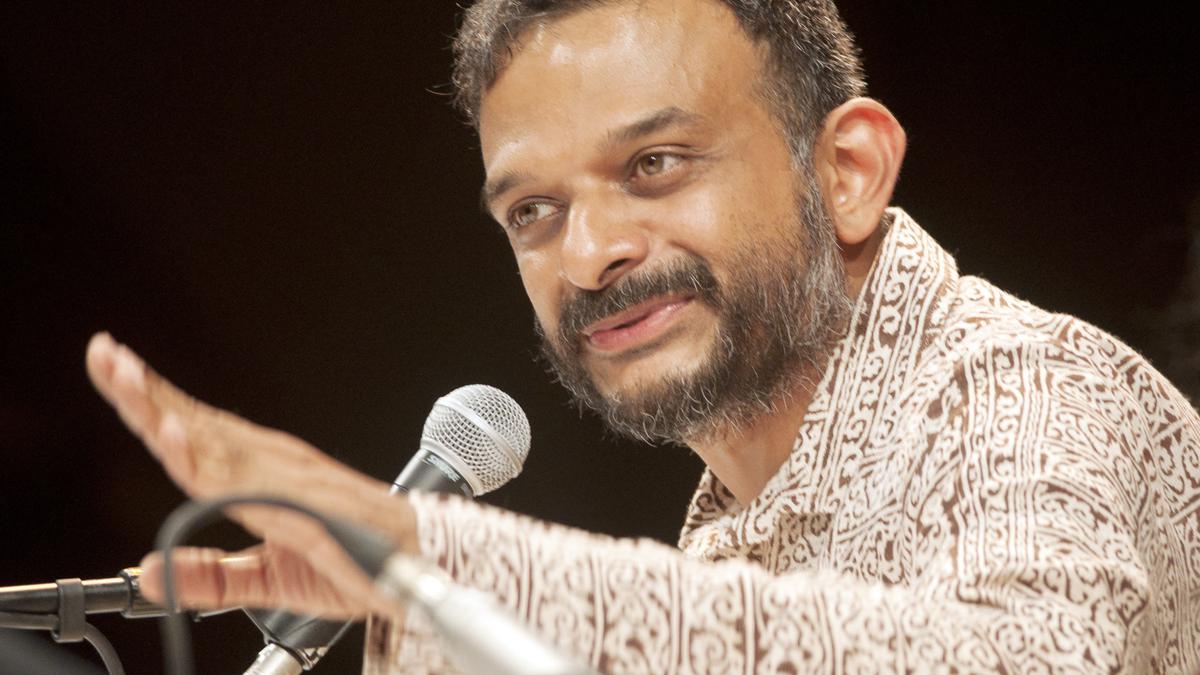
Sangam poetry finds space in Carnatic repertoire
The Hindu
Sangam Poetry in Carnatic music format
Carnatic vocalist T.M. Krishna and Tamil writer-teacher Perumal Murugan have been collaborators for some years now. Together, their attempt has been to broaden the horizons of the Carnatic music thinkscape — a poetic effort to infuse the socio-political and more. When Murugan wrote the song on the chittukuruvi (sparrow) as a metaphor for joyous tidings, Krishna sang it in raga Mohana Kalyani. When he composed the aandhai (owl) keertana, he sang it in raga Reetigowla. Then came another on Ambedkar, on manual scavenging, on farmer’s protests, on Periyar… Krishna included them all in his concert repertoire. For Murugan, responding to the here and now was as important as including other ways of life in his poetry. For Krishna, Carnatic music had to look beyond the repertoire of the past. It had to carry resonances from other worlds, had to include other people and embody multiple emotions. The concerns of the poet and the musician merged. Till date, 40 of Murugan’s compositions have been added to the existing body of keertanais. Krishna has also sung Asoka’s edicts, Narayana Guru’s compositions and 12th Century Kannada vachanas.
As part of The Hindu Lit Fest 2024, the duo will be in conversation about their most recent project - ‘Introducing ‘Sangam Poetry into Carnatic music’. “As a continuation of our experiments to bring other kinds of poetry into the Carnatic repertoire, Murugan and I talked about Sangam poetry as well. The subject landscape is diverse and beautiful, and there is a certain kind of universalism in these poems,” says Krishna. So far, there have been three concerts of Sangam poetry – in Tiruchi, Nammakkal, and Presidency College, Chennai – all to packed audiences.
“I have composed several songs for Krishna. We have had many discussions and I have written on a range of issues,” says Murugan. The idea of including Sangam poetry came from one of Murugan’s friends, a teacher in a college in Tiruchi. “Sangam poetry is classical, and the music is classical as well. He urged me to try.” Excited by the idea, Murugan started his research. Since he is a Tamil professor by vocation with a fair amount of expertise on the subject, he took it up. “I thought for a long time. There are over 2,000 poems. I wondered how to choose, and how I could bring these poems into keertanai form. It took me more than a year to put them together. For most of my work, I referred to the critical edition of U.Ve. Swaminatha Iyer,” explains Murugan.
Sangam poetry poses multiple challenges in terms of form and language. “The language of Sangam Poetry is not so difficult,” clarifies Murugan. “Around 50-60 per cent of the words continue to be used in contemporary Tamil as well. Some words of those times have a different meaning in modern Tamil. I, therefore, decided to use words that are relevant now, and replaced those that have a different meaning with expressions from Modern Tamil.” Between the two broad categories of Akam (inner) and Puram (outer), Murugan chose 10 poems that belonged to the same thinai (minor genres based on the location in which they are set).
Retaining the memory of those times, and giving it a contemporary rendition, was important to Krishna. Murugan’s Sangam creations worked well for him. “The content and the context seemed to go with each other, and they had not been rendered on the Carnatic concert stage before. The compositions are not dated, Murugan has reimagined it, and that is important.”
To rekindle past memories is a worthy task, but does it also bring in a value system which makes it important to sing Sangam poetry in our times? ”I have a problem saying the past was beautiful and things have degenerated now. That is why I feel good to work with Murugan. We don’t have to reject the past, we have to keep the past-present conversation alive. In taking up Sangam poetry we are pushing the past by 2,000 years. I believe that both continuum and rupture are important. And, there needs to be diversity in what we are saying,” reasons Krishna.
Murugan puts it differently: “There is a lot of value in re-reading, and Sangam poetry is alive in Tamil literary circles. People are going back to reading classical literature. That is why this project has generated a lot of interest. For our first concert in Tiruchi over 1,000 people had attended. It is necessary to invest fresh meanings into the past.”













